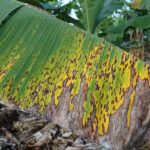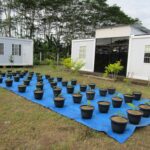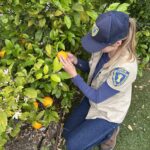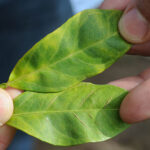Puerto Rico: Fighting anthracnose disease on mango trees

Anthracnose is a group of fungal diseases that cause dark sunken lesions on leaves, flowers, and fruits, including mangoes, making it one of the main issues for the industry.
According to the USDA, the disease has been associated with yield losses of up to 60% in different countries since it can totally rot mangoes in less than eight days, limiting its marketing.
Martex Farms in Santa Isabel, Puerto Rico, with over 4,000 acres of mango production, is working on developing new varieties of mango that are resistant to the disease.
Dr. Yair Aron, VP of production & research at Martex, says that the production and shipping process of mangoes is very expensive, and having fruit rot because of anthracnose during transport is very costly for everyone involved.
Researchers from the ARS’s Tropical Crops and Germplasm Research Station are leading the effort to develop resistant varieties on Martex Farms.
The idea is to reduce the amount of fungicides used in the fields and guarantee the quality of the fruit upon arrival to export markets.
Dr. Ricardo Goenaga, research leader for the ARS, says they are working with plant pathologists to find materials that are tolerant to anthracnose, as well as entomology work to manage the insects affecting mango plants.
"Collaboration with the industry has been excellent throughout the years," Goenaga says.
Aron says they appreciate all the work done by the ARS researchers, and assures that he has "an open line for all the researchers that are helping us in the farm and our exports to give us answers on where we have to continue with our research."








































